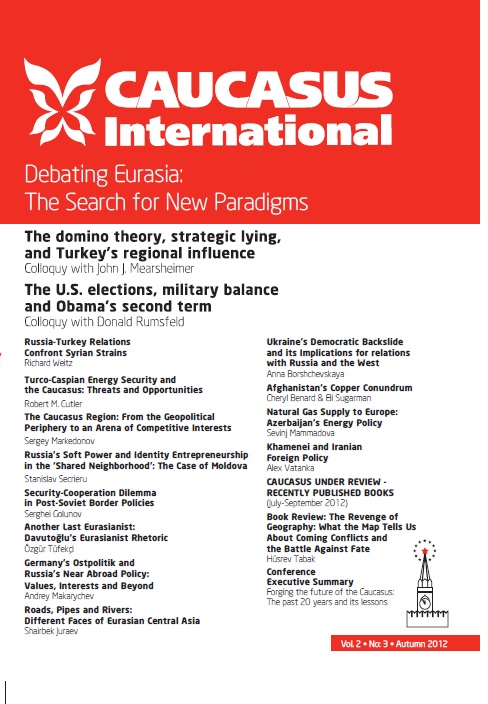The Caucasus Region: From the Geopolitical Periphery to an Arena of Competitive Interests
The Caucasus region is receiving increasing attention among scholars and decision-makers due to its geopolitical fragility and unpredictability. The paper focuses on the transformation of the Caucasus to one of the focal points of the Eurasian, European and Transatlantic security. The author examines the basic reasons behind the increased interest in the Caucasus since the dissolution of the USSR, looking at different states (Russia, U.S., Turkey and Iran), in addition to the European Union. The author will provide a brief overview of the geopolitical development of the region, arguing that the region was strategically important for the dominant international and regional powers of the past, though in the Soviet era it was not engaged in international politics. The article pays special attention to Russia’s position and its desire to maintain an exclusive role in the Caucasus. It examines the contradictory relationships of Moscow with Washington and Brussels, and explains American and European engagement in regional security issues. It also focuses on the similarities and specifics of the U.S. and EU policies on the region. On the Turkish and Iranian role, the author stresses the controversial connection of historical problems with the acute challenges of today. The article further considers the changing dynamics in regional and international actors’ approaches, revealing their lack of consistency. The paper emphasizes the new status quo that is now shaping regional dynamics after the August War of 2008, and its impact on the geopolitical vectors engaged in the Caucasus puzzle.
Latest news
- 03/17/2020 Call for Submission: “Non-Alignment Movement and Its Perspective in International Affairs”. Deadline: 1 July 2020 2625 views
Popular articles
- 02/24/2020 The Role of Irredentism in Russia’s Foreign Policy 2536 views
- 02/24/2020 Construction of sub-national identity vis-à-vis parent state: Gagauz case in Moldova 2218 views
- 02/24/2020 The Conflict in Ukraine - The Geopolitics of Separatism and Divergent Identities (Commentary) 2072 views
- 02/24/2020 The Role of the Soviet Past in Contemporary Georgia 2044 views





